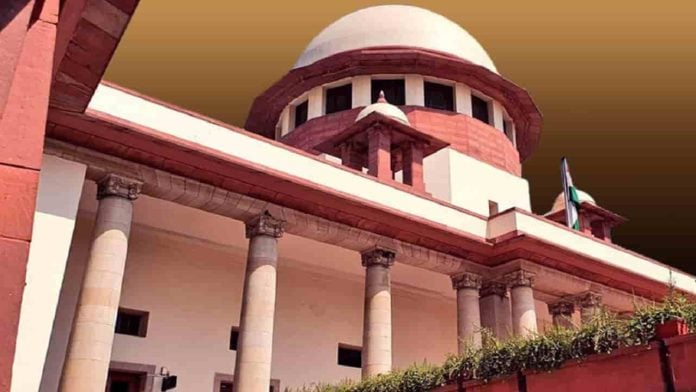The Supreme Court has agreed to hear a petition that challenged the Madhya Pradesh High Court order, which permitted the state government to hold board examinations for classes five and eight in government as well as government-affiliated private and aided schools.
The petition was mentioned before Chief Justice of India (CJI) D.Y. Chandrachud on Wednesday, who tagged it with a similar plea from Karnataka.
Filed by Ashaskiya Vidyalaya Pariwar, a registered society in Madhya Pradesh through Advocate-on-Record (AoR) Shwetank Sailakwal and Advocate Areeb Uddin Ahmed, the petition challenged the dismissal order passed by the Division Bench of High Court on an appeal against a Single Judge allowing board examinations to be conducted in classes five and eight.
AVP President Mohandas Nagwani contended in the plea that a circular issued by the State Education Department (Rajya Shiksha Kendra) directing government-affiliated private and aided schools, alongside government schools, to conduct annual board examinations in classes five and eight for the academic session 2022-23 was violative of Section 30 of the Right of Children to Free and Compulsory Education (RTE) Act, 2009 and various rules made under the Act.
The petitioner emphasised that Section 30 of the 2009 Act enjoined governments from requiring children to ‘pass’ any board examination till the completion of elementary education.
He contended that the Madhya Pradesh government was misinterpreting Rule 10-A inserted in the 2009 Act by a state amendment in 2019, which laid down that a ‘regular examination’ would be conducted in classes five and eight at the end of every academic year.
The petitioner said as per Rule 10, students would be declared passed if they obtained the marks decided by the Rajya Shiksha Kendra. The students who failed, would be given an opportunity of re-examination and if they fail again, they would be detained in Class 5 or Class 8, as the case may be.
On the strength of this amendment, the Education department in September last year mandated all government, government-affiliated private and aided schools to conduct annual examinations in a ‘board pattern’ for the academic session 2022-23, noted the plea.
It said mid-term examinations would have a weightage of 20 per cent, while the annual examination, divided into two components, namely written examination (60 percent) and project work (20 percent), would contribute 80 percent of marks under the scheme of evaluation.
The state government further directed that the syllabus for State Council for Educational Research and Training (SCERT), instead of the more prevalent National Council of Educational Research and Training (NCERT), would be followed.
The petitioners have challenged this new rule saying that the 2019 amendments did not allow the Madhya Pradesh government to force students to take ‘board-type examinations.


